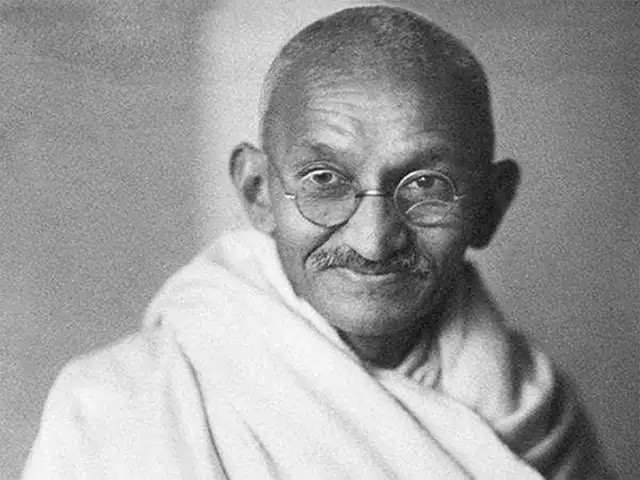Today is the 140th birthday of influential activist and champion of non-violent resistance, Mahatma Gandhi. In 2007, the UN established this day as the International Day of Non-Violence in order to commemorate the life and accomplishments of Gandhi.
Gandhi’s dedication to India’s independence through peaceful means reverberated across the globe, inspiring activists and policymakers alike to engage in civil disobedience in pursuit of their causes.
Ghana’s own Kwame Nkrumah drew inspiration from Gandhi’s strategies of noncooperation and peaceful protest in his methods of Positive Action. Like Gandhi, Nkrumah led boycotts, strikes, and civil gatherings rallying for independence from colonialism in Ghana and beyond.
In 2016, Indian president Pranab Mukherjee gifted a bronze statue of Mahatma Gandhi to the University of Ghana in Accra, in hopes the statue would inspire the gifted student body to follow Gandhi and India’s path toward economic development and political stability.
Within months of the statue’s erection there were calls from students and faculty to have it removed, citing Gandhi’s racist comments towards Black South Africans. The government and University of Ghana administration responded quickly in removing the statue.
In moving forward from this event, there was an overwhelming Pan-African consensus that Ghanaian students should instead draw inspiration from African activists who championed nonviolence like Kwame Nkrumah and Marcus Garvey among others.
Today, on the 140th birthday of Mahatma Gandhi, and 6 years after the removal of his statue from the University of Ghana’s campus in Accra, the question remains: Is Gandhi’s legacy as a nonviolent activist forever tainted by his racist remarks?
While it is important to acknowledge the severity of Gandhi’s racially charged and understandable that students and staff at the University of Ghana oppose the presence of his bronze effigy, his contributions to countless nonviolent movements across the globe are nonetheless undeniable. It is the next generation of scholars and activists that will have to reckon with the acknowledgement of Gandhi’s harmful comments while still making room to appreciate the influence of his peaceful crusade against colonialism.






![Ghana's Trade of Vulnerability: Rise of Imports, Fall of the Cedi [Part 2]](https://rggnews.com/wp-content/uploads/2024/06/1200x800-350x250.jpg)









